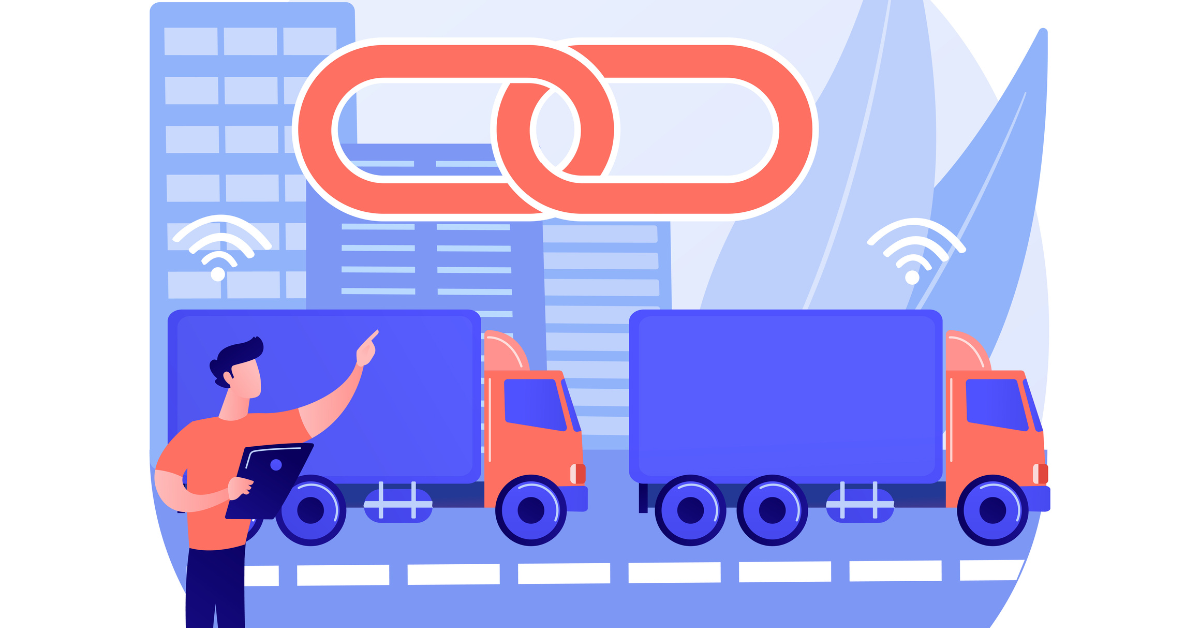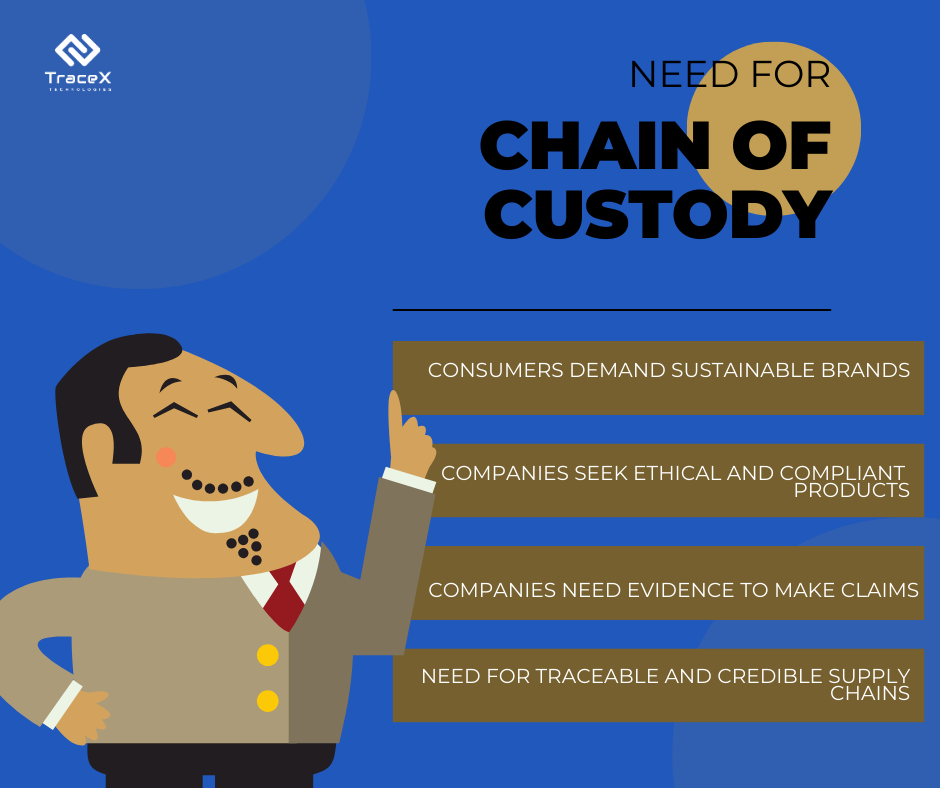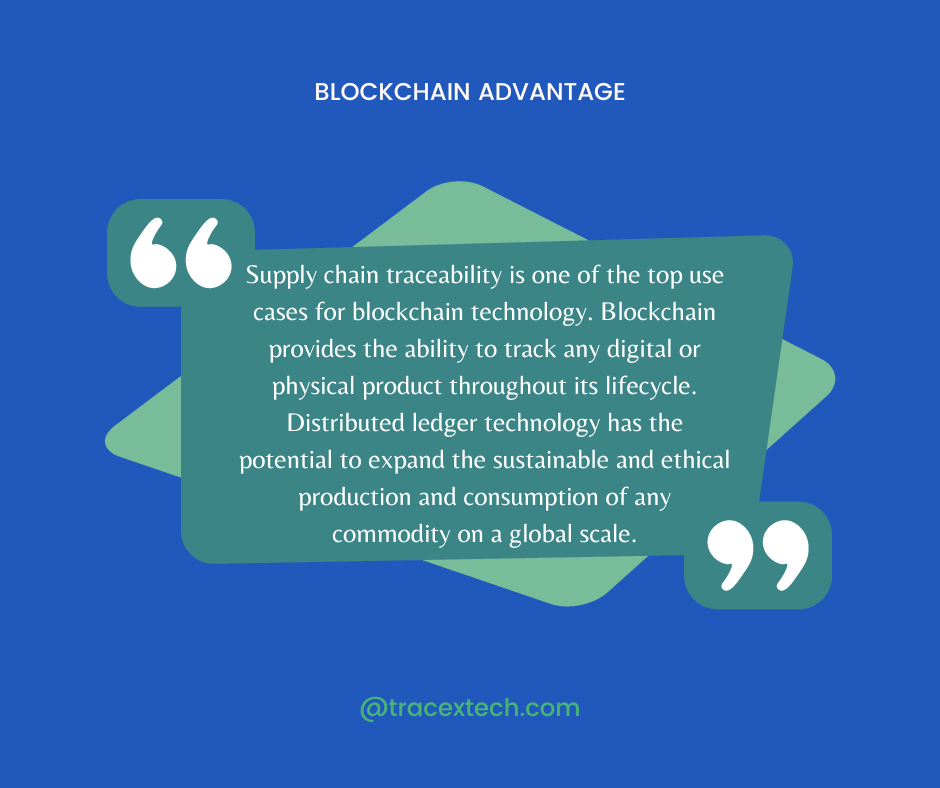Contact: +91 99725 24322 |
Menu
Menu
Quick summary: Uncover the pivotal role of supply chain traceability in effective commodity management. Learn how transparency and accountability impact the sourcing, handling, and distribution of commodities. Explore our blog to gain insights into the future of responsible commodity supply chains.

In an era where global commerce is intricately entwined with the exchange of commodities, the effective management of these essential raw materials and products has taken centre stage. Traceability in Commodity management is the cornerstone of many industries, shaping economies, and touching the lives of people across the planet. In the contemporary global marketplace, where commodities serve as linchpins in diverse industries, the imperative of establishing transparency and traceability within supply chains has surged. The management of commodities encompasses the handling of raw materials and products traded on an international scale, amplifying the necessity for robust traceability frameworks.
Only half the 100 companies with a deforestation commitment for every commodity to which they are exposed, monitor their suppliers or sourcing regions.
This blog embarks on a journey to explore the critical role of supply chain traceability in commodity management, shedding light on how it enhances the authenticity, compliance, and sustainability of commodities. Join us as we delve into the pivotal role of supply chain traceability in the realm of commodity management, shedding light on the advantages it bestows upon businesses, consumers, and the environment.
Commodity management is the strategic oversight and handling of raw materials and products that hold immense importance in the global marketplace. These commodities encompass a vast array of items, including agricultural products, metals, minerals, energy resources, and more. They form the bedrock of numerous industries, powering economies and shaping the everyday lives of individuals around the world.
Commodities are the lifeblood of the global economy. They are the foundational materials used in the production of goods, and their trading is the life force of many nations. These raw materials and products fuel industries, support livelihoods, and drive international trade. Whether it’s the wheat harvested in the fields of the American Midwest, the oil extracted from the depths of the Middle East, or the minerals mined in the African continent, commodities are the backbone of global supply chains, serving as essential inputs for industries ranging from agriculture and manufacturing to energy and technology.
As commodities traverse complex global supply chains, ensuring transparency and traceability has never been more critical. The interconnectedness of the global marketplace means that a product or raw material can change hands multiple times across borders before reaching its final destination. In such a landscape, it becomes imperative to have robust systems in place to track the journey of commodities from source to end-user.
Transparency in commodity management entails making the flow of commodities and their associated information visible to all stakeholders in the supply chain. This transparency is vital for several reasons:
Authenticity: It ensures that the commodity is what it claims to be, preventing fraud and counterfeit products from infiltrating the market.
Regulatory Compliance: Various industries and governments have stringent regulations regarding the sourcing, handling, and transportation of certain commodities. Traceability aids in complying with these regulations.
Risk Mitigation: Transparent supply chains are better equipped to respond to disruptions and crises, ensuring a continuous flow of commodities even in adverse conditions.
Ethical and Sustainable Sourcing: Consumers and businesses increasingly demand ethical and sustainable sourcing practices. Transparency enables companies to show that their commodities are sourced responsibly, minimizing negative environmental and social impacts.
Supply chain traceability empowers you to monitor the journey of products from their origin to the end consumer. It establishes a seamless connection between every link in your supply chain, providing you with a comprehensive overview and maintaining your brand’s integrity. With this capability, you can swiftly identify the entities, products, and procedures within your entire supply chain, understand their interrelationships, and assess their performance. Supply chain tracking stands as a pivotal component of the sustainability and Corporate Social Responsibility (CSR) initiatives for countless businesses and organizations.
Ensuring Product Authenticity
Supply chain traceability plays a fundamental role in ensuring the authenticity of products within the marketplace. By providing a transparent record of a product’s journey from source to consumer, businesses can confidently vouch for the legitimacy and quality of their goods. This is especially crucial in industries prone to counterfeiting or fraud.
Traceability enables companies to:
In an increasingly regulated world, compliance with various local and international regulations and standards is imperative for businesses. Supply chain traceability ensures that products meet the necessary legal requirements, such as safety, environmental, and labeling regulations.
It also helps businesses:
Supply chains are vulnerable to a myriad of risks, including disruptions, theft, contamination, and unforeseen events. Traceability is an invaluable tool for risk mitigation.
It enables businesses to:
As consumer awareness of ethical and sustainable practices continues to grow, businesses are under increasing pressure to source their materials responsibly.
Supply chain traceability is instrumental in supporting ethical and sustainable sourcing by:
Enhanced Quality Control
Traceability in commodity management enhances the quality control process by providing detailed insights into the journey of commodities throughout the supply chain.
Consistency: It ensures that products consistently meet quality standards by tracking every stage of production and transportation.
Identification of Defects: Traceability enables swift identification and rectification of defects or discrepancies, preventing subpar products from reaching consumers.
Data-Driven Decision-Making: The data collected through traceability allows for data-driven decision-making, which can improve product quality, reduce waste, and enhance production efficiency.
Traceability engenders trust among consumers, which is paramount in today’s marketplace. Consumers increasingly seek transparency and accountability in the products they purchase.
Consumer Confidence: Knowing that a product can be traced back to its source instills confidence in consumers, who are more likely to choose products with a transparent supply chain.
Brand Loyalty: Companies that prioritize traceability often enjoy increased brand loyalty and repeat business from satisfied consumers.
Ethical Sourcing: Traceability can also showcase a company’s commitment to ethical and sustainable sourcing, which resonates positively with environmentally and socially conscious consumers.
In the unfortunate event of a product safety concern or contamination, traceability becomes a lifeline for crisis response and product recalls:
Swift Identification: It enables quick and precise identification of affected products and the source of the issue, reducing the scope and impact of recalls.
Prevention of Widespread Harm: Timely recalls protect consumers from potential harm and minimize reputational damage to the brand.
Regulatory Compliance: Demonstrating the ability to trace and recall products aids in regulatory compliance, which is crucial in maintaining market access and consumer trust.
Traceability fosters environmentally responsible practices in commodity management:
Sustainable Sourcing : It allows businesses to trace the origins of raw materials and components, verifying that they are sourced from responsible and sustainable suppliers.
Reduced Environmental Footprint: Knowing the entire journey of commodities aids in reducing waste and minimizing the environmental impact, such as carbon emissions, throughout the supply chain.
Ethical and Green Marketing: Businesses can leverage their environmentally responsible practices for ethical and green marketing, attracting environmentally conscious consumers and enhancing their brand image.
The chain of custody entails meticulously monitoring materials as they traverse each stage of the supply chain, encompassing sourcing, production, processing, shipping, and retail. This comprehensive oversight relies on a combination of methodologies, technologies, and documentation to meticulously trace materials from their source to the final product.
Supply chain traceability, in turn, is the practice of meticulously tracing the path within the supply chain by monitoring and tracking the chain of custody, from its origin to the ultimate product. This approach offers valuable insights into the product’s inception, constituent components, manufacturing processes, and the various entities involved in its journey.

Various chain of custody models have been meticulously crafted to cater to diverse industries globally. While these models may diverge in their specific standards and requisites, they share a common goal, as articulated by BSR: “to ensure accurate record-keeping and establish a verifiable connection between the initial raw materials (e.g., ‘sustainable,’ ‘recycled,’ or ‘organic’ by certain definitions) and the eventual end product.” These models each present a distinctive method for monitoring and validating claims, presenting a spectrum of solutions with varying degrees of granularity and reliability.
In this model, the physical product can be traced back to its sustainable source. Within the supply chain, the output from each distinguishable source is meticulously segregated from the products of other sources, even if they were produced following identical standards. When it comes to the point of sale, consumers can receive information about the individual and distinct source of the product.
When an amalgamated stream of products, all adhering to the same set of criteria, is diligently isolated from other products throughout their journey in the supply chain, this practice is known as segregation. While the product a consumer possesses might not be traceable to a singular source, it is assured to be in compliance with the specified criteria. This Chain of Custody model is often considered ideal, especially for many convenience goods.
For reasons of efficiency or environmental considerations, there are instances where segregating sustainable and non-sustainable products, especially when there’s no physical distinction between them, isn’t always practical. In the Mass-Balance model, products originating from both sustainable and non-sustainable sources are blended together. However, as they progress through the supply chain, an accurate record is maintained regarding the volume ratios. This ensures that the quantity of sustainable products manufactured is equal to the volume ratios of compliant products sold to consumers, guaranteeing adherence to the set criteria.
In certain supply chains, achieving the segregation or meticulous tracking of volume ratios between sustainable and non-compliant products may pose significant challenges. In such scenarios, a Book & Claim model can be employed. Under this approach, physical products are blended and traded without distinction as non-compliant. However, the “right to claim” is transacted on a dedicated online market in the form of certificates. A central authority oversees and validates the claims made by brands and retailers, cross-referencing them with the number of certificates issued and traded. This model is particularly valuable in markets where the local demand for sustainable products surpasses the local supply.
Blockchain is a distributed and immutable ledger that records transactions across a network of computers, ensuring transparency, security, and trust. In supply chain traceability, blockchain plays a pivotal role.

Provenance Tracking: Blockchain records each step of a product’s journey, from its origin to its final destination. This ensures that every transaction and transfer is transparent and tamper-proof, allowing stakeholders to trace the provenance of goods.
Real-time Visibility: Blockchain enables real-time tracking, allowing all participants in the supply chain to access the same, up-to-date information. This transparency is particularly valuable for ensuring compliance with regulations and standards.
Data Security: Data on the blockchain is encrypted and secure, reducing the risk of data breaches and ensuring the integrity of information throughout the supply chain.
Efficient Auditing: Audits become more straightforward as all transactions are recorded on the blockchain. This simplifies the process of verifying compliance, which is crucial for regulatory requirements.
TraceX’s blockchain traceability solutions are instrumental in revolutionizing supply chain traceability for commodities. By leveraging blockchain technology, TraceX ensures that every step of a commodity’s journey, from source to consumer, is meticulously recorded and secured. This not only enhances product authenticity but also enables compliance with regulations, risk mitigation, and support for ethical and sustainable sourcing. With TraceX, businesses can gain real-time visibility into their supply chains, facilitating efficient auditing and improved quality control. In an era where transparency and accountability are paramount, TraceX’s solutions empower businesses to navigate complex global supply chains with confidence and responsibility.
In conclusion, supply chain traceability is the cornerstone of responsible and effective commodity management in today’s global marketplace. It empowers businesses to not only ensure the authenticity of their products but also to comply with regulations, mitigate risks, and support ethical and sustainable sourcing practices. With the aid of advanced technologies like blockchain and IoT, supply chain traceability has become a powerful tool for businesses to enhance efficiency and build consumer trust. As consumers increasingly seek transparency and accountability, companies that prioritize traceability are poised to thrive in a conscious and discerning market. Supply chain traceability is not just a strategic choice; it is an ethical commitment to responsible commodity management, environmental stewardship, and a better future for all.
